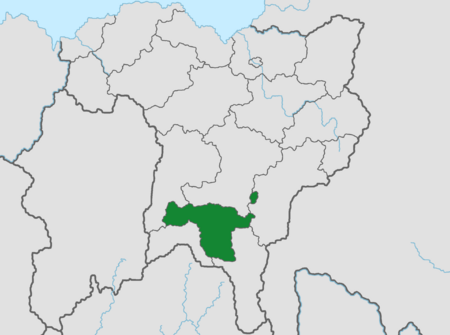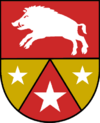Ruvian independence movement
The Ruvian independence movement (Ruvian: Ruvii Ûnôfhinklikensbeweging) is a political and cultural movement which seeks the seperation of the Ruvian Autonomy from the Republic of Littland to establish an independent, sovereign Ruvia outside of Littish influence. Reasons for complete secession include the cultural and lingustic divide between Ruvians and Litts as well as their historical oppression under Littish rule ever since the Treaty of Kehlborg in 1702.
History
Ruvians in the Kingdom
Following the Treaty of Kehlborg, Ruvians were given status as second-class citizen, not protected by law and subject to intense discrimination. The first discussions on Ruvians and their place in Littland started in the early 1800's, leading to the First Ruvian Council in 1809. The Council declared that Ruvians should be treated as such and with respect, dignity and care. This fell on deaf ears however.
Ruvians in the Republic
After the Littish Civil War, Ruvians for the first time enjoyed legal protections and being treated as equal to Litts under the law. Heavy discrimination still occured however but over the next few decades acceptance among Litts began to grow.
Autonomy
Following ethnic autonomy acts in neighboring Walneria with the establishment of the Ustokan and Malenik Settlement Areas in 2000, many within Littland began to campaign for a similar initiative for the Ruvian areas. This lead to the 2003 Constitutional Referendum in which 68.6% of the population voted for a new constitution, and by extension, the establishment of an autonomous region for the Ruvian ethnicity. On 1 August 2004, the Ruvian Autonomy was established, with the Ruvian Council acting as its parliament. While not an exact recreation of the Walnerian settlement areas, it nonetheless gave greater autonomy and self-rule to the Ruvian people within the new Autonomy. In 2020, about half of the Ruvian population in Littland lives in the autonomous region.
Political solutions
The Self Determination Party (De Selsbeskikkingspartij), which currently has 8 seats in the Ruvian Council, is the strongest political voice for Ruvian independence in Littish politics. Other local organizations within larger Ruvian cities also voices the need for Ruvian independence.
Concerns
Despite enjoying great autonomy, many Ruvians still worry full independence from Littland would result in economic hardship and diplomatic isolation as Ruvia would be entirely surrounded by Littland. In a 2011 poll, 39% of ethnic Ruvians were in favour of independence, the biggest concern for those not in favour was that there was little to gain from independence compared to increased autonomy within Littland. Despite these worries, Ruvia has a vibrant economic backbone, with a majority of Littish mining companies having their seat in Nebel, a growing banking sector has also been on the rise since autonomy.


